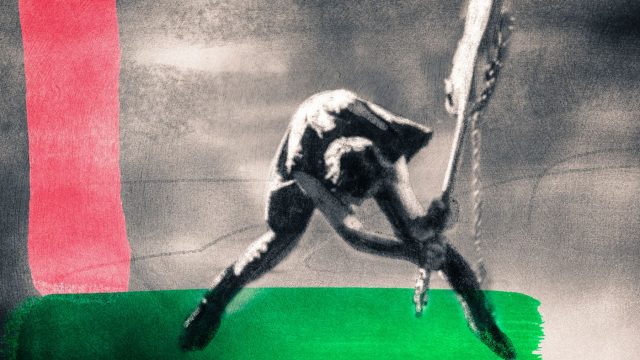“London Calling” is a horror story conveyed through the medium of pop music. The unspoken word in the song is ‘apocalypse’, and it sounds like it’s coming from multiple directions – conventional and nuclear war, civil unrest with violently totalitarian response, the collapse of the environment, and even the word ‘zombies’ are all dropped. Even a listener unaware of the context of ‘London calling’ – that it was the opening line in the station identification of BBC World Service in WWII as it broadcast to occupied countries – will feel the chill of the phrase; it’s ominous to me that a city is calling for us, and a call demands a response. Why is the city calling? What response does it expect? It doesn’t call to good citizens to take up arms, it calls to everyone, even creatures and places that don’t sound like they have your best interests at heart. The feel of the music backs this up. It never quite feels like it resolves properly, as if there’s still something to come. Shifting to the chorus provides no relief. The closest we get are the same chords played with a more conventional fingering – not so much stable as a more familiar kind of horror. The production is hazy or foggy without ever being indistinct; it sounds the way a good horror flick from the Seventies looks.
Our narrator, operating in the present tense, peppers his description of London with advice and judgement calls, some of which is explicable (“Come out of the cupboards” being a reference to common advice for a nuclear war), some of which isn’t. The threat of annihilation is coming down on us all, and yet he seems, if not thrilled, then energised; if the fear of death was ever there, it’s been replaced by fear of a bad death. He’s more afraid of losing his soul than his life. He’s cajoling you into joining the fight. Which side? Doesn’t seem to matter. The most vivid imagery is in the chorus, but the most poignant lines are in the first verse, when he tells you not to turn to rock bands for guidance (“Now don’t look to us / Phony Beatlemania has bitten the dust”). This is a call to action – any action at all, anything that makes you feel alive in the face of certain doom and strikes at least a symbolic blow against the Powers That Be. Make the best decision you can, you should be able to recognise the bad guys when you see them. The Clash might have gotten away from the standard text of punk – on top of the horn section, this contains a backwards guitar solo – but they have, if anything, intensified its spirit.

